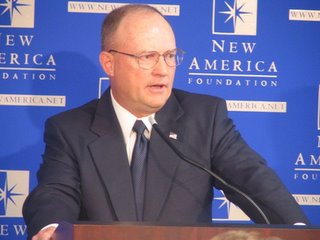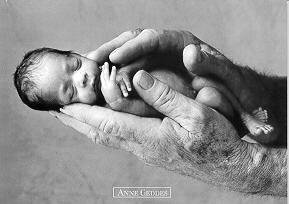Colonel Finally Saw Whites of Their Eyes
By Dana Milbank
Thursday, October 20, 2005; A04

As Colin Powell's right-hand man at the State Department, Larry Wilkerson seethed quietly during President Bush's first term. Yesterday, Colonel Wilkerson made up for lost time.
He said the vice president and the secretary of defense created a 'Cheney-Rumsfeld cabal' that hijacked U.S. foreign policy. He said of former defense undersecretary Douglas Feith: 'Seldom in my life have I met a dumber man.' Addressing scholars, journalists and others at the New America Foundation, Wilkerson accused Bush of 'cowboyism' and said he had viewed Condoleezza Rice as 'extremely weak.' Of American diplomacy, he fretted, 'I'm not sure the State Department even exists anymore.'"
And how about Karen Hughes's efforts to boost the country's image abroad? "It's hard to sell [manure]," Wilkerson said, quoting an Egyptian friend.
The man who was chief of staff at the State Department until early this year continued: "If you're unilaterally declaring Kyoto dead, if you're declaring the Geneva Conventions not operative, if you're doing a host of things that the world doesn't agree with you on and you're doing it blatantly and in their face, without grace, then you've got to pay the consequences."
With Bush's approval ratings dropping below 40 percent, the administration's vaunted loyalty and party discipline are suffering. David Frum, a former White House speechwriter, is campaigning against confirmation of Harriet Miers to the Supreme Court. Bruce Bartlett, who worked for the president's father, was fired by his think tank this week because he is publishing a book titled "Impostor: How George W. Bush Bankrupted America and Betrayed the Reagan Legacy."
And, on Capitol Hill yesterday, Republicans joined in criticizing the administration about Iraq. When Rice said at a hearing that "we have made significant progress" in Iraq, Sen. Lincoln D. Chafee (R.I.) replied: "Well, we all wish that were true, but we can't kid ourselves, either."
Wilkerson adds a new dimension to the criticism. A 31-year military veteran and former director of the Marine Corps War College, he worked for Powell in the public and private sectors for much of the past 16 years, and he was often described by colleagues as the man who would say what Powell was thinking but was too discreet to say.
Wilkerson's beef with the administration was, for the most part, not ideological. He argues that U.S. forces must remain in Iraq, and he describes George H.W. Bush as "one of the finest presidents we've ever had."
Rather, the colonel objected to the administration's secrecy, which allowed Cheney, Rumsfeld and others to subvert the foreign policy apparatus that has been in place since 1947.
"What I saw was a cabal between the vice president of the United States, Richard Cheney, and the secretary of defense, Donald Rumsfeld," he said. By cutting out the bureaucracy that had to carry out those decisions, "we have courted disaster in Iraq, in North Korea, in Iran, and generally with regard to domestic crises like Katrina." If there is a nuclear terrorist attack or a major pandemic, Wilkerson continued, "you are going to see the ineptitude of this government in a way that'll take you back to the Declaration of Independence."
Wilkerson, part military man and part academic, said "hell" a lot but also used words such as "desultory" and "titular." Peering from large wire-rimmed glasses, armed with a flag lapel pin, he spoke with barely restrained anger. He had given critical quotes about the administration before, but yesterday's New America Foundation speech was his coming out as an administration critic.
He had barbs for lawmakers ("truly abandoned their oversight responsibilities") and said past presidents had also circumvented the national security structure. But, he said, "the case that I saw for four-plus years was a case I have never seen in my studies of aberrations, bastardizations, perturbations, changes to the national security decision-making process."
Wilkerson blamed Bush, "not versed in international relations and not too much interested," for letting the Cheney-Rumsfeld cabal to take over. He blamed Rice for dropping her role as honest broker to "build her intimacy with the president." And he blamed whoever gave Feith "carte blanche to tell the State Department to go screw itself."
The cabal's end run around the bureaucracy, he argued, stalled nuclear diplomacy with North Korea and Iran. He said top officials "condoned" prisoner abuse and left the Army "truly in bad shape."
"You and I and every other citizen like us is paying the consequences," he said, "whether it was a response to Katrina that was less than adequate certainly, or the situation in Iraq which still goes unexplained."
The colonel said his old boss is not pleased with his decision to go public with his criticism. Powell, he said, "is the world's most loyal soldier." Wilkerson said he admired that, but he took a different view of loyalty: not to the administration, but to the country.
© 2005 The Washington Post Company, cached here for easier access.




